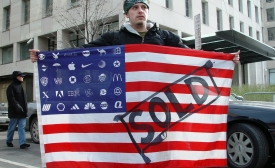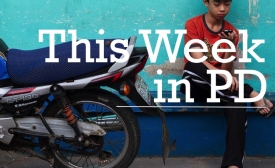public diplomacy
Simon Anholt arrived at an outlook similar to that of Ambassador Choi’s commercial paradigmafter a decade of consulting governments on how to improve their national brand.

The conclusion of Michael Ardaiolo's two-part blog on best public diplomacy practice.
One of the problems with Israeli public diplomacy is that it is predictably reactive and generally negative. Suppose, for once, Israel were to take a different tack, one based on the principles used by judo experts--namely, to use the opponent's own strengths and moves against him
Faiza A. el-Naga noted that the recent Ethiopian Public Diplomacy Delegation’s visit to Cairo was a complete success. Faiza Abou el-Naga further suggested both countries needed to tap more potential areas of cooperation incuding investment and trade.
In 2014, China stepped up its campaign to shape international norms governing the Internet, moving vigorously in its public diplomacy and behind the scenes to subjugate the online world to state power.
Ireland’s foreign service is relatively small, with 80 representations, and comparatively thinly spread, with an average of one to two people in each post. But it is talented, flexible and normally led by generalists well able to represent the State in a great variety of international settings.

This week in Public Diplomacy, the use of new media and technologies dominated the global dialogue.
After decades as a career diplomat, Ambassador Y.J. Choi of South Korea wanted to find the root of the difference between Eastern and Western societies.







